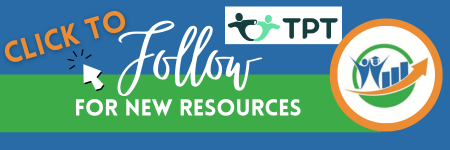5 MORE Steps to Get Started with the Science of Reading
- April Connelley
- Oct 2, 2023
- 2 min read
Updated: Oct 7, 2025
By April Connelley

Last February, I wrote a blog titled Five Steps to Get Started with the Science of Reading if you haven’t checked it out, I would start there. I wrote it because people frequently ask me where to start if to find out more about the science of reading. All of the recordings, books, podcasts, and articles can be a little overwhelming. So I wrote that blog for anyone who asked to have some solid places to start.
Now several months later, I think it might be beneficial to go back and revisit this topic. I’ve been thinking about what other recommendations there are that can continue fueling anyone’s personal learning journey. So I decided to highlight some additional choices. This blog is a menu of sorts, some solid selections to explore, so pick and choose what works best for you.
I’d also love to hear from you, what are the resources you value the most? Email me at april@incompassingeducation.com with your favorites.
Here are the 5 Additional Steps:
It’s important to clearly define the science of reading. One of the first things, I recommend in the first blog was a clear definition of the science of reading. I suggested using the defining guide from the Reading League that is available for free download here. I still believe that is an excellent resource. Now, though, I’d go a little further and compare that definition to the language in Indiana House Bill 1558 which guides the specific work in our state.
Listening to podcasts is a great way to keep learning and hear directly from some of the leading researchers in the field. Here are a few more to choose from:
The Knowledge Matters Podcast
The Melissa and Lori Love Literacy Podcast
Are you looking for articles? Here are a few more to add to your toolkit:
ARE YOU TRYING TO FIGURE OUT HOW TO IMPLEMENT THE SCIENCE OF READING AT YOUR SCHOOL? This article is a great place to start. Five Action Steps for School and District Leaders Implementing the Science of Reading linked here will get you started with 5 clear and manageable steps.
This article is a great read about phonemic awareness. Check out The Importance of Phonemic Awareness for African American Students.
Here are few other valuable resources to explore.
If you want to learn more about what is happening in the brain when someone is learning to read, this 30-minute video will get you started. How the Brain Learns to Read – Prof. Stanislas Dehaene
The National Center on Improving Literacy has important information on FLUENCY that can be found here. Including a definition, teaching tips, and videos of what fluent reading sounds like at different grade levels.
Are you looking for videos for your early readers that teach sound-symbol relationships? Check out the videos on Reading Buddies from The Reading League found here. You won’t be disappointed in these fun engaging videos!
Dive deeper with any of these additional book titles.
The Writing Rope: A Framework for Explicit Writing Instruction in All Subjects by Joan Sedita
Equipped for Reading Success: A comprehensive, Step-by-Step Program for Developing Phonemic Awareness and Fluent Word Recognition by David A. Kilpatrick, Ph.D.




